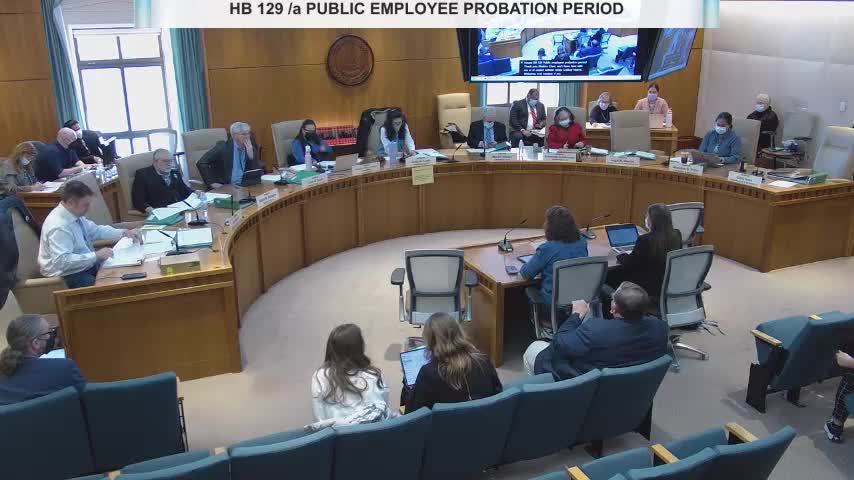Senate committee hears testimony on bill to cut state employee probation to 180 days
Get AI-powered insights, summaries, and transcripts
Subscribe
Summary
The Senate Health and Public Affairs Committee heard testimony on House Bill 129, which would shorten the probationary period for classified New Mexico state employees from one year to 180 days and clarify that probation does not restart on lateral classified moves unless there is a break in service.
At a noon meeting of the Senate Health and Public Affairs Committee, senators heard testimony on House Bill 129, a measure to reduce the probationary period for classified state employees from one year to 180 days.
Proponents told the committee shortening the probationary period would help recruit and retain workers and align New Mexico with other jurisdictions and portions of the private sector. Supporters also said an amendment adopted in the House clarifies that probation does not restart when an employee moves to another classified service assignment unless there is a break in service.
A sponsor’s representative and an expert witness explained the bill’s provisions to the committee. The sponsor’s representative summarized the measure’s effect and the House amendment, saying the bill “simply reduces the probationary period for state employees from 1 year down to a hundred and 80 days, which is equivalent to about 6 months,” and describing the House amendment’s change to language about commencing another classified service assignment to prevent a probation period from restarting after certain transfers.
Lindsey Hurst, an expert witness, told senators that training time for many positions varies widely and that the bill would apply to all classified employees even when training continues beyond 180 days. “It depends on the position,” Hurst said, adding that in some specialized fields training and follow-up can take more than two years. Hurst also noted that exempt employees are subject to different employment rules, saying exempt employees “are fireable at will.”
John Lipschutz of the New Mexico Federation of Labor testified in support of the bill, saying the federation “stands in strong support of this measure and in support of our public sector workers.” Dylan Lang, state personnel director for New Mexico, described the bill as “a great compromise between the benefits and the interests of employees and employers for the state” and asked for the committee’s passage. Anne Keller, an 11‑year state employee and treasurer of CWA Local 7076, said reducing probation to six months would promote recruitment and retention and bring New Mexico in line with Albuquerque and other states.
Senator Scott asked whether required training is typically completed within six months. Hurst answered that training timelines depend on the position and that some required training extends beyond six months, but reiterated that the bill’s change would apply to all classified employees.
No formal committee vote is recorded in the transcript excerpt. The committee received public and organizational testimony and proceeded to questions from members.
